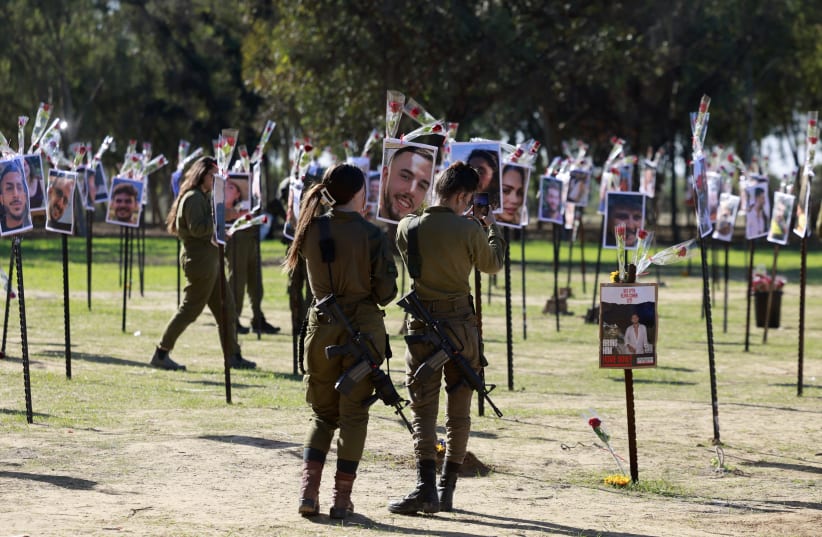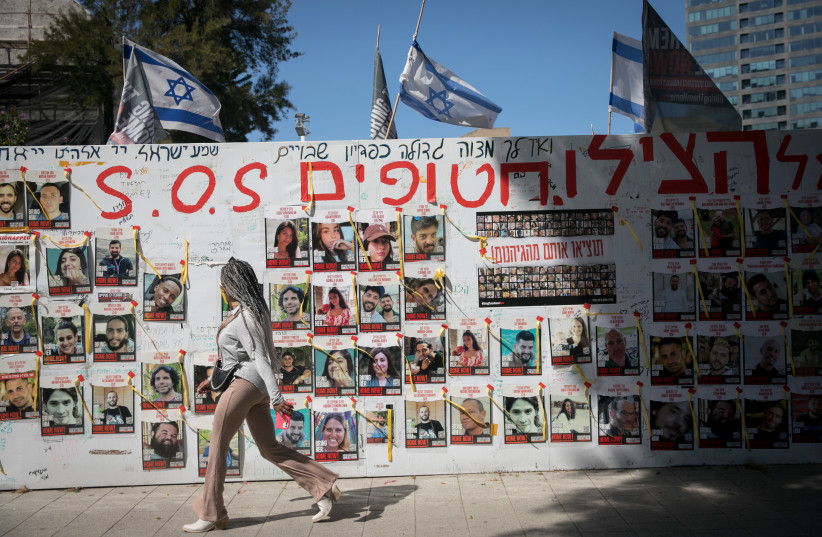On flights to and from Israel last month, I read Time’s Echo, Jeremy Eichler’s brilliant new meditation on the interplay of music and memory. Recounting the stories of four Holocaust-era composers, Eichler asks his readers to practice “deep listening” – that is, to take in not only the composers’ sounds, but also their voices, reverberating across the decades. With deep listening, Eichler says, we can hear history in a register richer than is possible with words and images alone.
Perhaps the book actually unlocked some new aural sensitivity in me – or it might just be a coincidence. But as I reflect on my nine days in Israel, the most lasting impressions were… the sounds.
That’s not to say there aren’t searing things to see up and down the State of Israel. Almost every storefront and bus stop is papered with the faces of hostages. Hand-scrawled graffiti in Jerusalem says “F*ck you Bibi,” while blue-and-white billboards in Tel Aviv declare, “Bibi, we’re with you.” At the site of the Nova Music Festival, where red poppies famously bloom in February, the park looks like it is flowering with blood.
And yet, the sounds of the week etched in me something deeper.
Sounds resonating throughout Israel in time of war
At the Nova Festival site, as dozens of soldiers were walking among the photos, candles, and poems left in memory of the victims, four men in T-shirts by the muddy car path suddenly produced a long Yemenite shofar and blew piercing cries into the air. Everyone had already been quiet, but after the shofar blasts, the silence was thicker.
At Hostages Square in the plaza in front of the Tel Aviv Museum, there is a “Gaza Tunnel” art installation. As I walked through the dark and narrow corridors, what really assaulted my senses was the gunfire ricocheting off the metal walls in seemingly every direction.
Nearby on the same plaza, a group of hostages’ friends huddled together, singing tearful verses of “Lu Yehi” into scratchy microphones. I heard the line “ten lahem lishuv halom” – let them come home – with the anguish Naomi Shemer intended.
Shabbat morning, at Jerusalem’s Kol HaNeshama Synagogue, I joined congregants in reading aloud the names of the missing, captured, and injured. Naama. Omer. Watchara. Mohammad.
On a moshav in southern Israel, I picked cherry tomatoes and weeded blueberry bushes to the sound of hundreds of chickens squawking in their pens. Among all the week’s noises, this one might have passed me by, except we had just been told by the moshav residents that when they evacuated, 120,000 of their chickens died of starvation. I thought about the stubborn persistence of life. (In the dull repetition of blueberry weeding, my brain tried to connect the cycle of events: foul abomination, fowl regeneration).
I also heard the bombs in Gaza. The sheer volume of pain.
And beyond the sounds of the shofar, guns, music, prayers, livestock, and bombs, I also heard the whispers.
What is this strategy?
How did we so deeply misunderstand our dependence, not to mention our incompetence?
Is it really now down to us versus them?
Sending a signal for someone to listen
In Time’s Echo, Eichler writes that victims of trauma cannot fully understand their own experience until its telling has been witnessed – that is, “until the survivor’s narrative has been deeply heard.” The same is true of music, he says – “there must be someone waiting on the other end of a performance to receive its signal.... There must be someone ready to listen.”
That someone, of course, is us. In Judaism, the core prayer, the Shema, literally commands us: “Hear.” Eichler observes that human beings have eyelids but no earlids – our inescapable obligation is to deeply imbibe the sounds, to listen deeply for both mourning and hope – bearing witness to not only what has happened, but to what may yet be possible.
The writer, a former Microsoft executive, is a strategy consultant in Washington DC. She serves on the board of the National Library of Israel’s American affiliate, NLI USA, and as a senior adviser to the Israel Constituent Assembly Project.

